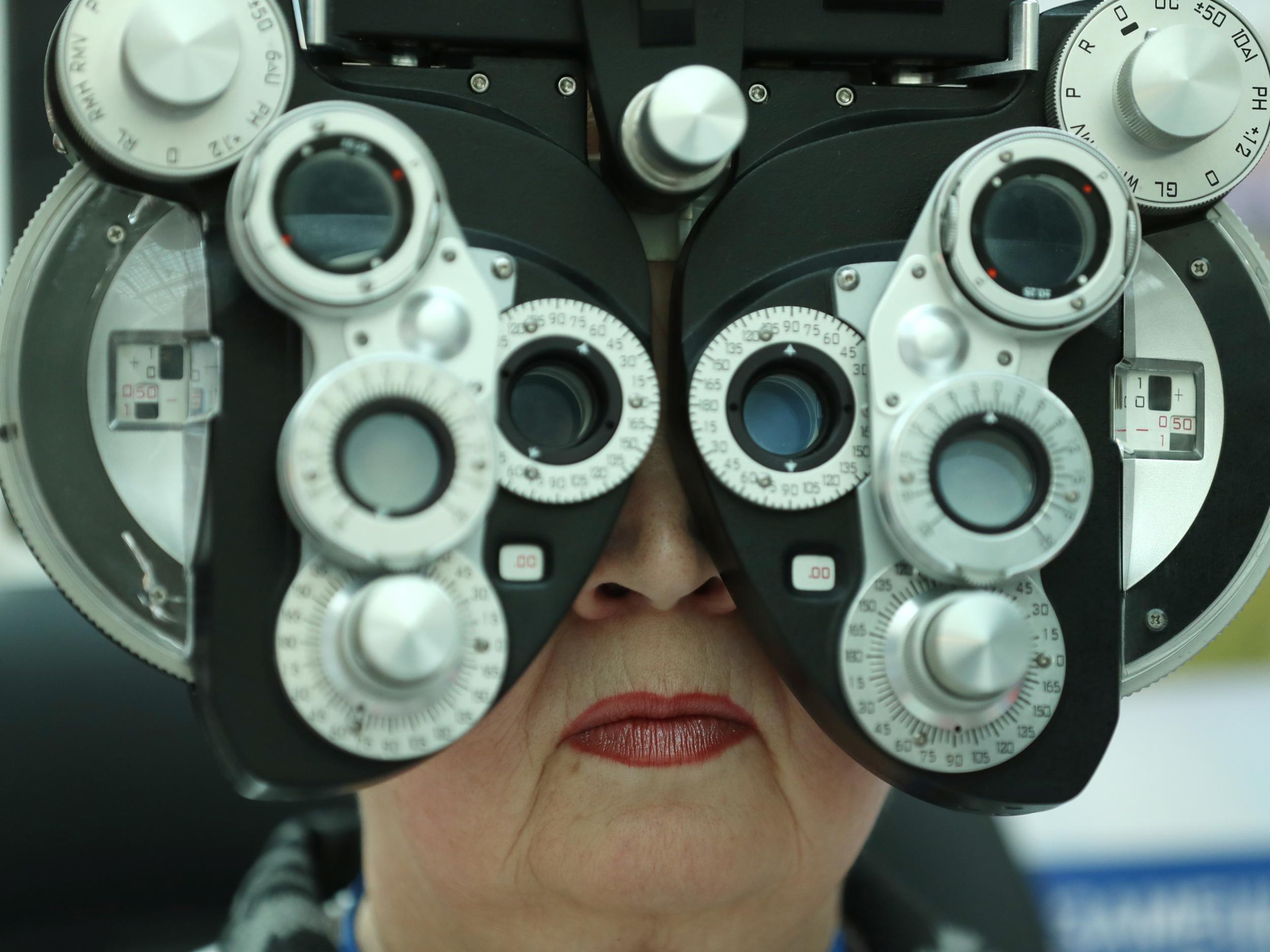The company offering a breakthrough blindness treatment... or your money back
Spark Therapeutics, a small biotechnology company in the US, says it will offer discounts based on whether treatment works or not

Your support helps us to tell the story
From reproductive rights to climate change to Big Tech, The Independent is on the ground when the story is developing. Whether it's investigating the financials of Elon Musk's pro-Trump PAC or producing our latest documentary, 'The A Word', which shines a light on the American women fighting for reproductive rights, we know how important it is to parse out the facts from the messaging.
At such a critical moment in US history, we need reporters on the ground. Your donation allows us to keep sending journalists to speak to both sides of the story.
The Independent is trusted by Americans across the entire political spectrum. And unlike many other quality news outlets, we choose not to lock Americans out of our reporting and analysis with paywalls. We believe quality journalism should be available to everyone, paid for by those who can afford it.
Your support makes all the difference.A transformative genetic treatment for a rare, inherited form of blindness will come with a price tag of $425,000 (£314,508) per eye, or $850,000 for both, said Spark Therapeutics, the tiny biotechnology company that is bringing the therapy to market.
Since Spark’s Luxturna was approved by the US Food and Drug Administration last month, speculation over the price has grown as it became clear the therapy would be one of the first in a wave of medicines that yield remarkable results after a single treatment -- and would carry a commensurate cost.
In a novel arrangement, Spark will offer discounts based on whether or not the drug works initially and remains effective for the estimated 1,000 to 2,000 patients in the US with a type of inherited retinal disease caused by a mutant gene.
“We believe that this price reflects not only the breakthrough, life-altering value of one-time Luxturna, but it will enable us to continue to invest and build on the revolutionary science that supports not only Luxturna but the rest of our pipeline,” chief executive Jeff Marrazzo says.
New way to pay
The company’s effectiveness-based discount is sharply different from how most drugs are currently sold. Health insurers are also used to paying for medicine over the course of a disease or over a patient’s life, in the case of some chronic conditions.
A one-time treatment presented a challenge, since the cost would be paid for by one insurer or government, only to have others reap the benefits when the patient changes coverage.
To help mitigate that dynamic, Spark is rolling out several programmes to spread out the cost over the years or give rebates to payers if the benefits wane with time.
For example, the company said it’s discussing a programme with the US Centres for Medicare & Medicaid Services that would spread payments for Luxturna over several years, even though the therapy would be given only once. It didn’t say how many instalments would be made, or how long it would take to pay the full cost of the drug.
In an agreement with the Boston-area insurer Harvard Pilgrim Health Care, Spark will get the full price of treatment upfront. If patients don’t get an immediate benefit (measured at 30 days) or a long-term one (measured at 30 months), Spark will have to give some of the money back in a rebate.
Spark has also proposed selling the gene therapy directly to insurance companies or specialist pharmacies. That would sidestep the current process that requires hospitals or health care providers to buy expensive therapies upfront. Spark is working with Express Scripts on such an arrangement, and said it’s talking with other drug plans.
‘Revolutionary product’
Express Scripts has been a frequent critic of costly drugs, yet said that the Spark treatment is an exception.
“Many people were anticipating this would be more than a million dollars,” says Steve Miller, the company’s chief medical officer. “In the end, this is a revolutionary product, and I think in most plans this will be covered.”
Spark’s biggest challenge may be finding patients to treat.
Of the few thousand people with the disease, only a few have actually been tested and confirmed to have it, since there was no cure, and thus little use in diagnosis. Many with more advanced forms of the disease won’t qualify for treatment, according to the company.
Bloomberg
Join our commenting forum
Join thought-provoking conversations, follow other Independent readers and see their replies
Comments